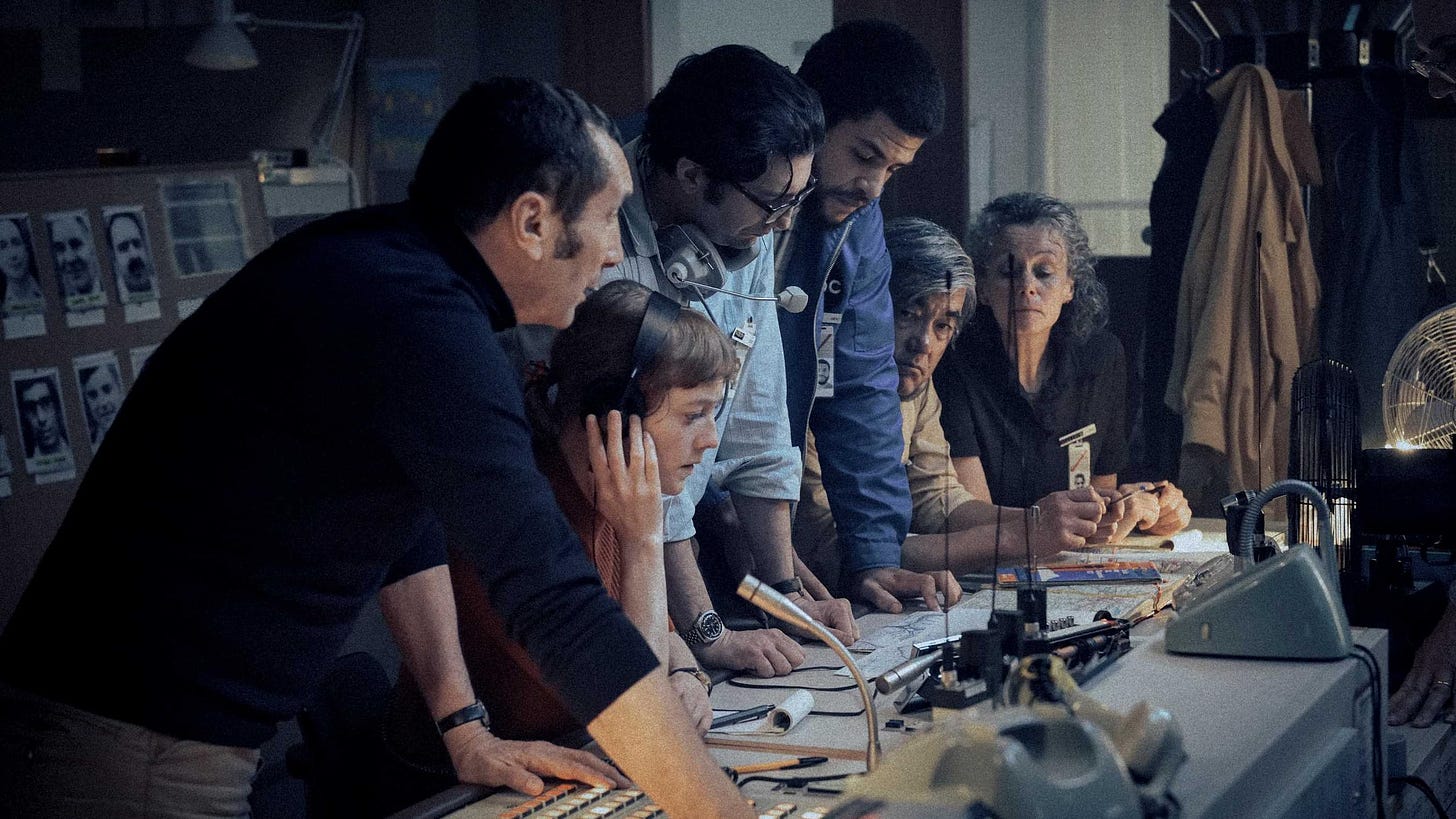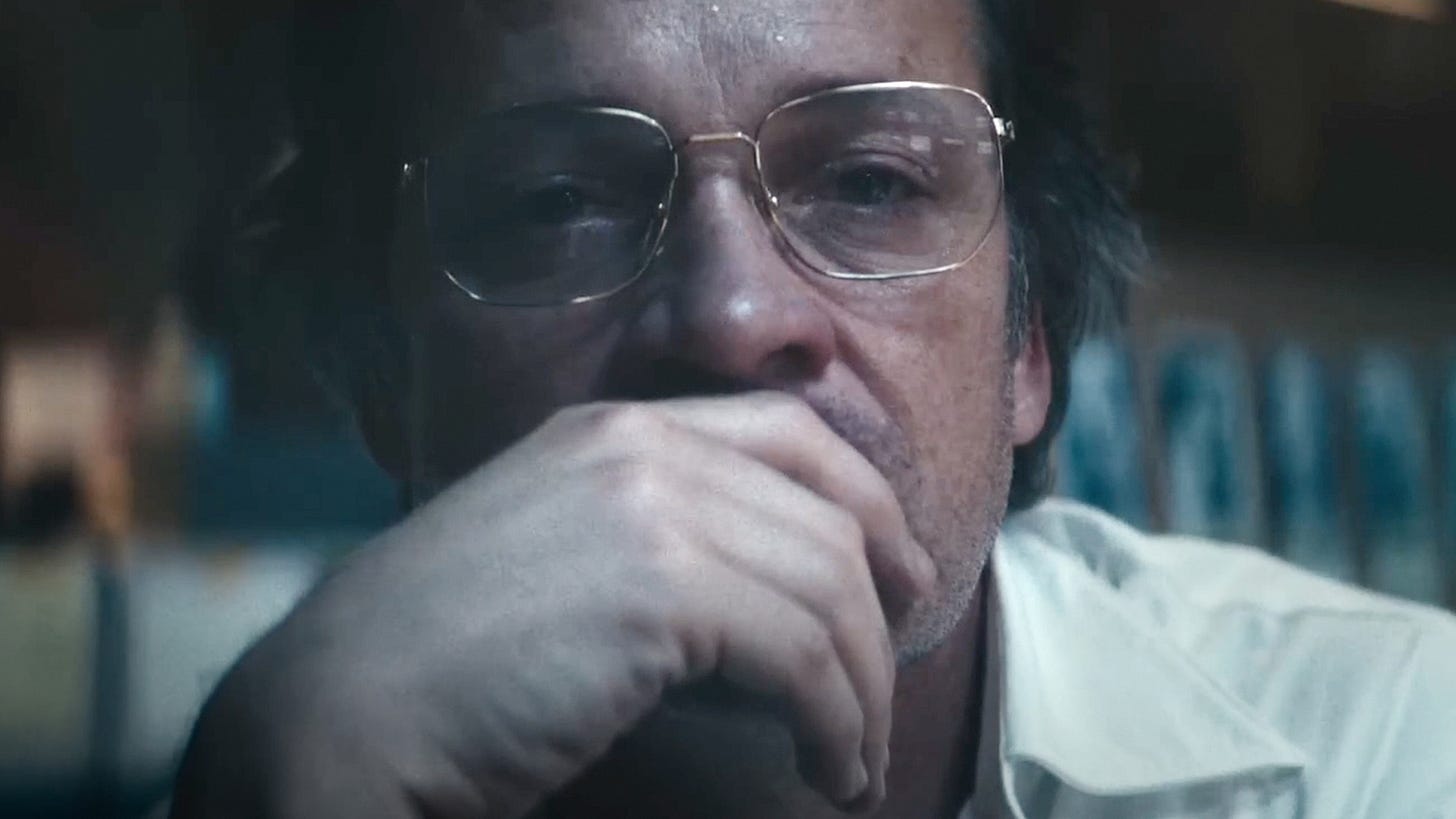Witnessing the events of the 1972 Munich massacre as they unfold through the perspective of a broadcast station isn’t as thrilling as the premise may guarantee. At first sight, you’re misled into thinking this is going to be an intense journey. September 5 wastes no time getting into the action. There’s little room for introduction, it’s all tightly compact. From the outset, we're shown how this broadcasting crew operates and the mechanisms of their systems. We’re then briefly introduced to the characters using bare minimum exposition. At what feels like the ten-minute mark, we hear gunshots and we’re thrust into the main event.
The speed at which events kick-off is admirable and evidence of consideration for the audience. There is a level of excitement and intrigue that is satisfying to begin with but it then slowly fades out as impatience starts to kick in. We’re hearing how events are unfolding one hundred yards away from the broadcast station via various forms of communication, however, there’s an itch to see events unfold rather than merely hear about them. You can appreciate the film's method of restricting the perspective solely to the broadcast station and the dedication to following the events as they occurred in reality, but there’s a lack of engagement brewing.
When we do get to see the events through archival footage of the hostage situation at hand, there is a significant lack of tension. Given the severity of real-life events, there’s an expectation that the cinematic portrayal would replicate the tension and dread one feels in response to discovering the news of a terror attack. With nine hundred million people that tuned in to watch this broadcast, it feels as though this particular portrayal didn’t match the significance of reality.
Another element as to why this work suffers is that it’s not character-driven. It’s not particularly clear whose story we are following and that’s because we aren’t seeing it through a character's perspective but rather a documentation of events as they unfold in the broadcast room similar to our exposure of what's unfolding outside of it. It’s all from a distance, there’s no intimacy. We jump between what seems to be the film’s central characters, the producer, the executive and the German translator. But none of these individuals changes for the worse or for better as a result of the journey. These are stagnating characters that are there to fulfil their roles as tools to present the mechanism of the broadcast station to the audience.
Judging by my words thus far it would give the impression that there’s little good about September 5 which isn’t the case. It’s an ambitious and interesting concept that presents strength in its pacing and care of archival materials but all the ingredients aren’t mixed quite right to deliver a succulent dish. This is a film that justifies its existence at least. While Stephen Spielberg’s Munich (2005) presents the revenge-driven aftermath of the attack, there was room for a film to dedicate its focus solely on the events of that day in 1972. This is just one interesting chapter in what appears to be a neverending conflict.
Out in UK cinemas now




